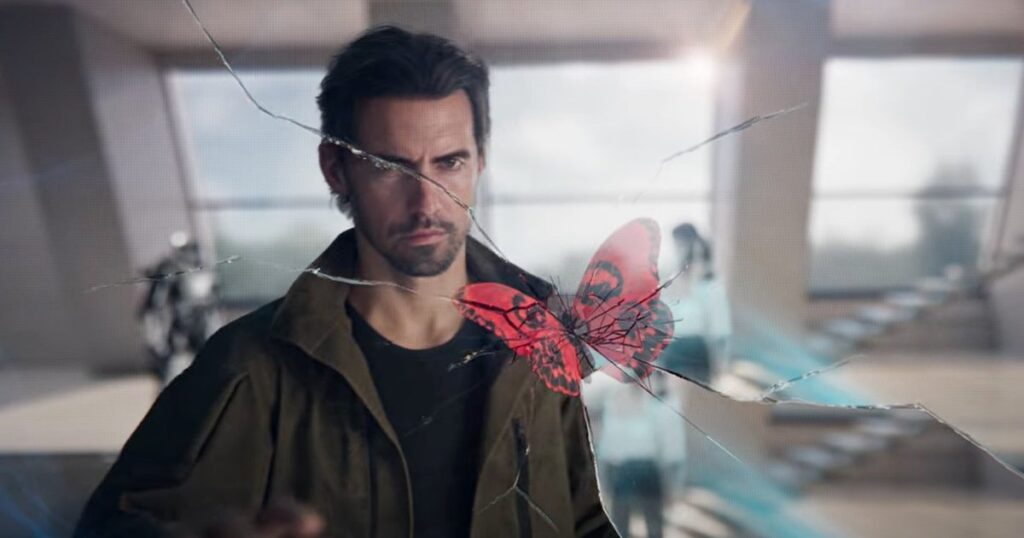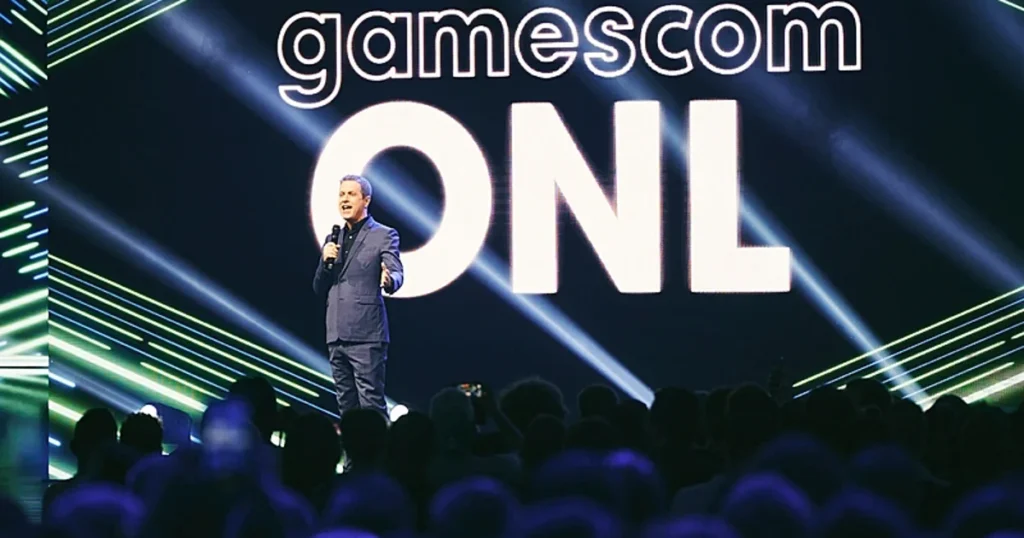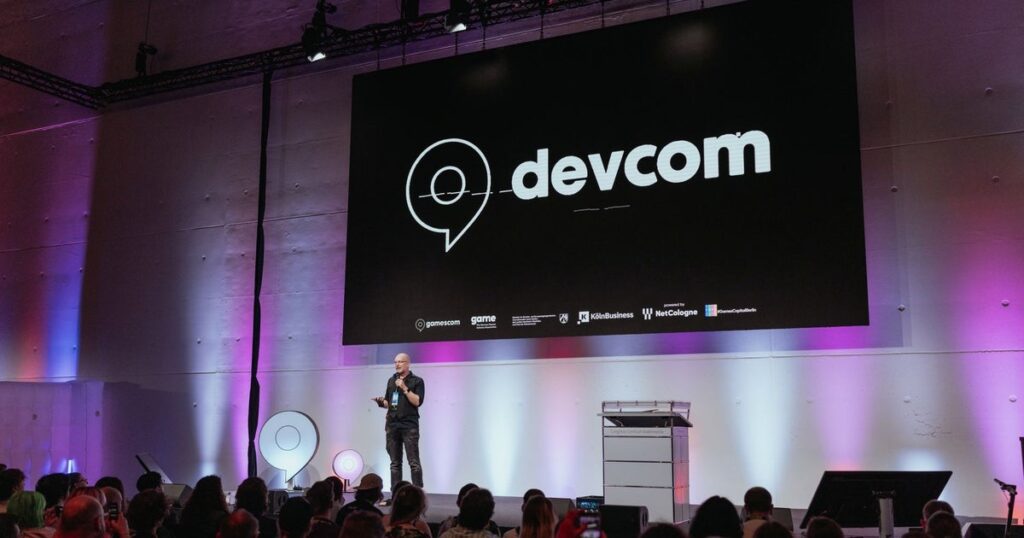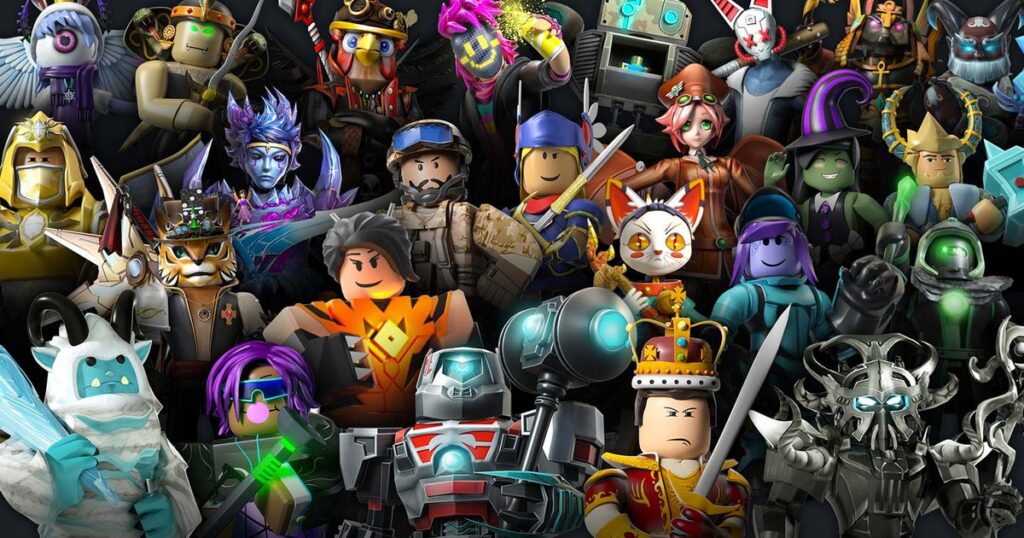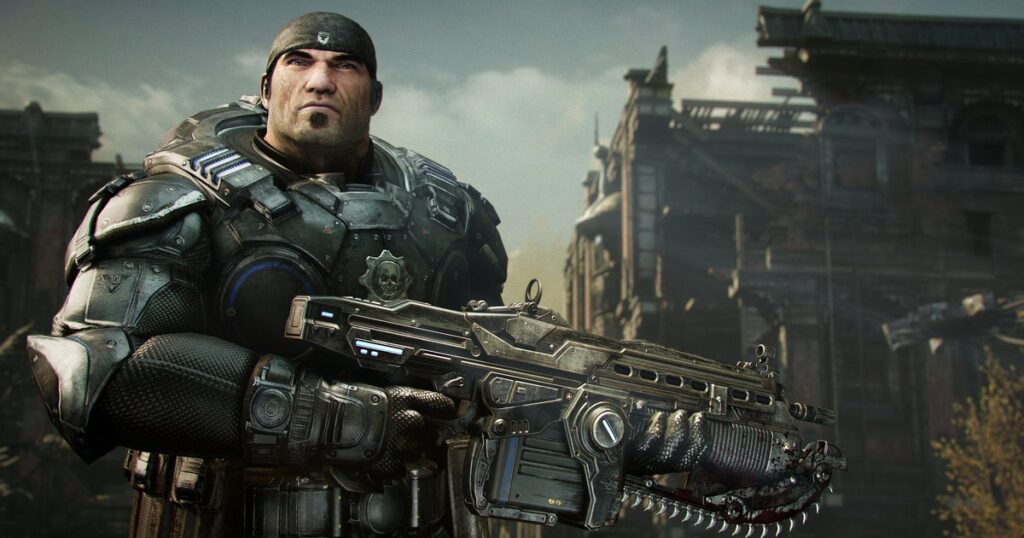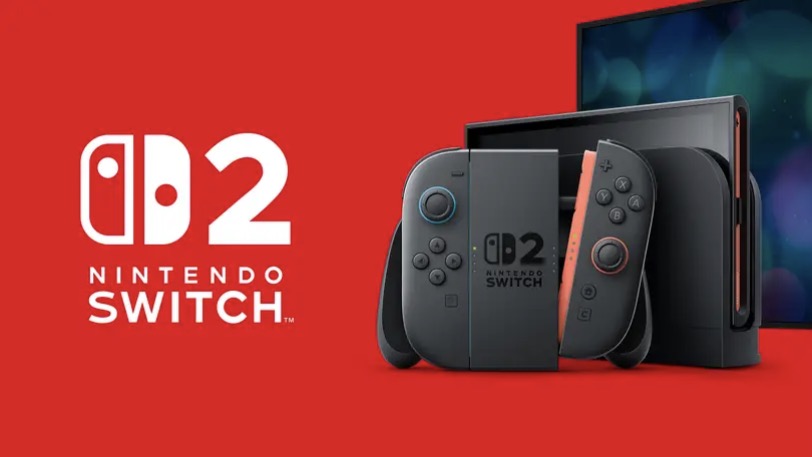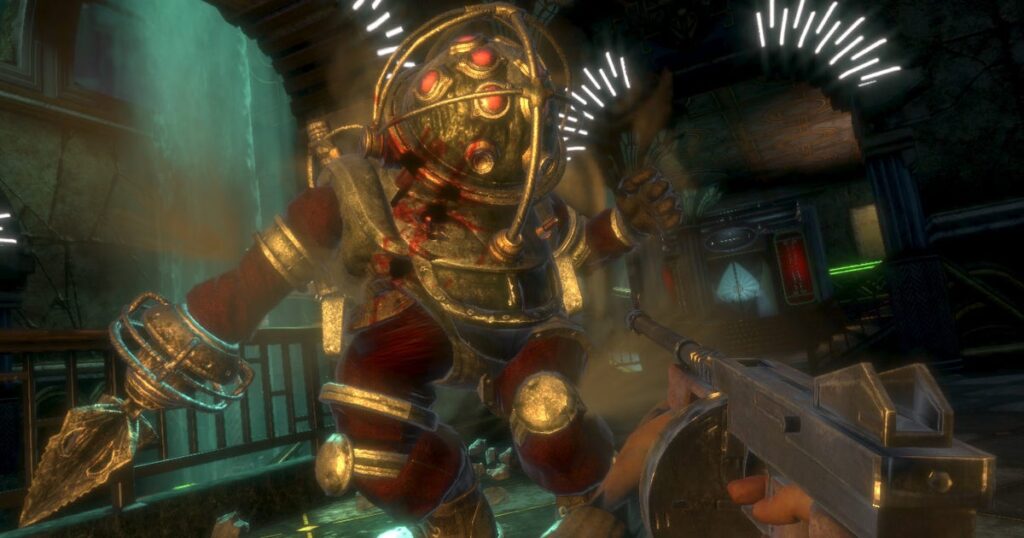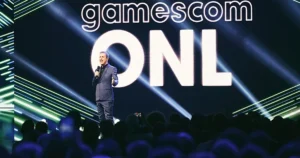You’re no doubt aware that Roblox is a pretty big deal in the games industry. But you’d be forgiven for underestimating just how big.
“At our developer conference last year, we announced this fairly ambitious goal of
getting 10% of the global gaming content revenue flowing through the Roblox ecosystem,” says Greg Hartrell, senior director of product management at Roblox.
“We think we are in striking distance of doing this over the next few years.”
Roblox has grand plans to “enable the creation of anything, anywhere, by anyone,” he says, and a crucial ingredient of that plan is to allow users to make experiences based on various different intellectual properties (IPs).
Hence why Roblox has introduced a new, streamlined licensing platform that will allow outside firms to easily integrate their IPs into the Roblox system.
“Right now, we’re onboarding a select set of IP holders as we are learning about the product and how our community is reacting,” says Hartrell. The inaugural line up of IP holders includes Sega, Lionsgate, Netflix, and the Japanese manga publisher Kodansha, each offering a small number of properties for use within Roblox.
Anyone who wishes to add their IP has to go through an onboarding process, in which Roblox verifies that the company owns the IP and ascertains the scope of their copyright. Then, the firm defines a license for the use of the IP on the platform.
“The tools allow you to effectively take a template, standard licence, and customise it in a few simple ways,” says Hartrell, “setting a revenue share rate, setting content standards, and then defining some eligibility criteria. It’s really that simple.”
“The way that revenue share works with licences is you can set it anywhere from zero to 95%,” he adds. “You need not monetize. If you do monetize, the revenue share comes from the creator’s gross of proceeds after platform fees.”
Starting line-up
There’s a curious mix of IPs on offer in this first tranche. Some are pretty huge: Stranger Things and Squid Game are the jewels in the crown of Netflix, for example. But there’s the sense that other companies have been reluctant to roll out the big guns right away.
Lionsgate, for example, is offering Twilight, Now You See Me, and Divergent, but noticeably not John Wick. And Sega has Like A Dragon in its line-up, but Sonic is nowhere to be found.
Hartrell is quick to defend the choices. “Twilight, I don’t believe, has been offered as a game licence ever in its history,” he says.
“It would be fair to say that, yeah, [Sega is] starting with Like A Dragon, but I think it’s deliberate in the sense that they have a hypothesis that Roblox has a lot of battleground games and a lot of action RPGs, and […] it’s fit for purpose for the IPs.”
“We are obviously talking with these IP holders. They’re eager to add more IPs, and I think it’s more a function of logistics and where it’s easiest to, let’s say, start, versus being reluctant.”
The more adult nature of some of the initial IPs might come as a surprise considering how young the Roblox audience tends to skew. But Hartrell notes that they can be adapted to meet Roblox’s community standards, giving the example of Squid Game (“quite a mature IP”) being adjusted to fit a broader audience.
At this point, the watching PR jumps in to point out that the majority of Roblox users are over 13, and that brands can set age restrictions as part of their licensing – for example, only allowing age 13+ games to be made using certain IPs.
“IP holders are always in control here, so they can set their eligibility standards and decide what ultimately gets a licence,” agrees Hartrell.
UGC playground
But the thing about Roblox – and all games based around user-generated content (UGC) – is that there’s only so much control anyone can have about what users ultimately decide to make.
For companies more used to strictly controlled branding guidelines, the thought of letting people do as they will with their most precious IPs might be alarming. So what happens if players start using a company’s IP in ways that are deemed inappropriate?
“There’s a number of layers there,” says Hartrell. For a start, Roblox has its own content standards, prohibiting things like excessive violence and sexual content across the board, and IP holders can set the maturity rating for their IP. But they can also use a tool to scan for uses of their IP on Roblox and issue takedown notices for anything that crosses a line.
“Not all IP holders want to adopt that posture,” says Hartrell. “So another alternative here with the licensing tool is to say, hey, if you’re using my IP, I’m willing to offer you a licence, but then you additionally need to conform to my content standards.”
Creators would then agree to these additional content standards when they receive a licence.
“And I guess the last tool that we give IP builders is for every active licence that they have, they have the means to provide basically a change request, if you will. And from there, the platform facilitates contacting the creator, explaining what kind of change is needed to conform with the standards, and the creator gets some reasonable amount of time to make those changes.
“Any creator that doesn’t comply with that risks losing the licence, and the content could eventually be taken down.”
But isn’t this all a lot of additional work for IP holders, having to monitor and moderate the use of their IP on Roblox?
“I think it’s a fair question,” says Hartrell, although he says that many of the things IP holders might be concerned with would also tend to violate Roblox’s own content standards, and as such would be picked up anyway via a combination of AI scanning and human moderation.
But there might still be a small number of things IP holders are concerned about, he says. “For example, if you have a movie, [or] a TV IP, using the likenesses of real-world actors can be prohibited.” In that case, a creator might need to be asked to remove the likeness to be compliant.
Shopping for IP
From the Roblox user’s point of view, they can now simply browse through the license catalogue and pick something that interests them for their project. Then it’s a case of reading through the terms of the license, including the revenue share and eligibility criteria, and then accepting them.
After that, the license manager gets a notification that there’s a new applicant, and they have a chance to review the project by playing the applicant’s game or reading the description that the applicant provided of what the experience will be.
“At that moment in time, they can approve or reject it,” says Hartrell. “On approval, you get the licence immediately.”
“The only nuance there is we do allow for a creator to propose deferring monetization,” he adds – this is for cases in which the IP hasn’t yet been incorporated into the user’s experience.
“Once you approve a licence, everything’s automated in terms of collecting revenue share”
Greg Hartrell, Roblox
Compared with the usual methods of acquiring IP rights, it’s incredibly streamlined. Hartrell notes that it would typically take months to negotiate an IP deal, but with Roblox’s new system, users can access an IP within days, and sometimes within hours.
“The streamlined process of applying really just simplifies it for a creator, so you don’t need a whole lot of business knowledge to be able to use really incredible IP.”
But then there’s that question again – how much work will this involve for IP holders, especially given Roblox’s vast audience? Will they be inundated with applications?
Hartrell is confident that Roblox’s tools will quickly flag any time-wasting applications for license managers. “There’s immediate data where they know that they can reject certain experiences,” he says.
“Once you approve a licence, everything’s automated in terms of collecting revenue share, communicating to the creator what the expectations are. And then, over time, we’re going to do even more.”
He notes that currently, Roblox uses an AI system to search for and flag the use of an IP in an experience. But in the future, he thinks that AI technology might be able to describe how an IP is being used, and “maybe even comment on how it conforms with your content standard.”
Do it yourself
In terms of what kinds of official assets creators receive access to after signing up to use an IP, the answer is… none.
“No assets are provided or required to be used,” confirms Hartrell. “But on Roblox, that ends up being a feature, in the sense that […] our creators are somewhat unbounded on how they can create.”
He likes to think of it as maximum creative expression. “That said, I think there’s a future where we can imagine providing a library of, let’s say, pre-approved assets, things that the IP holders are excited for creators to use. And I think I can imagine us supporting that sometime in the near future.”
The elephant in the room amid this discussion is that Roblox is already awash with creators using IP in a decidedly unofficial fashion, whether it’s for making, say, One Piece-adjacent brawlers or homages to their favourite TV series.
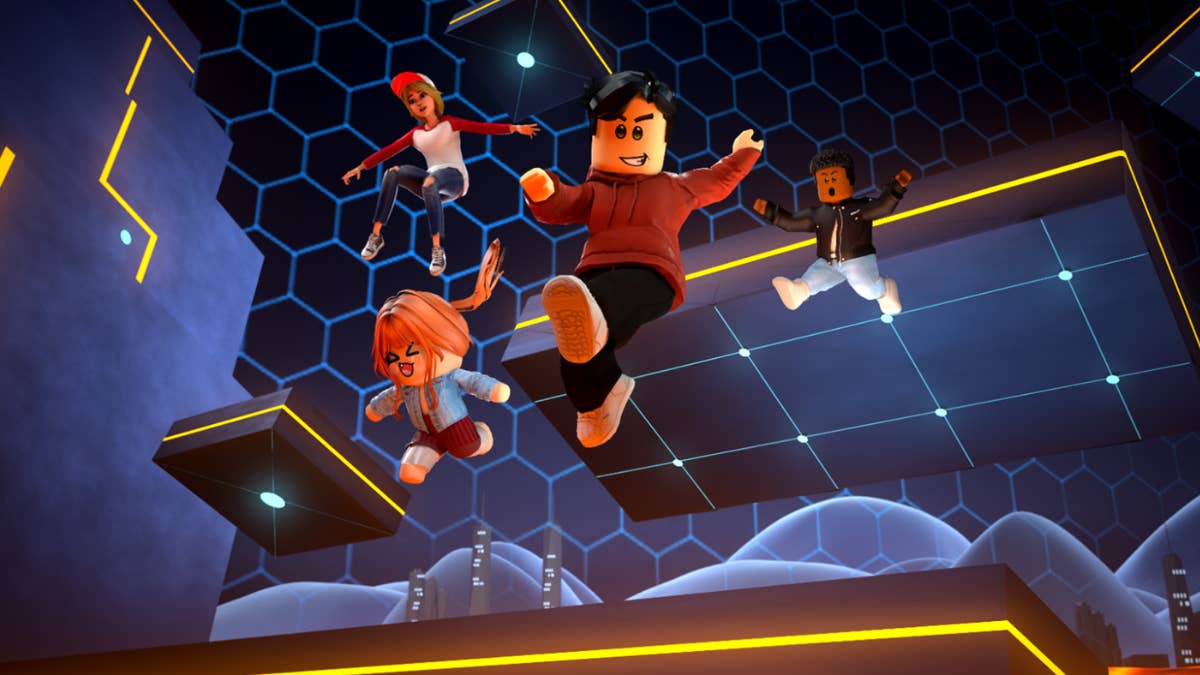
Now that Roblox is offering creators access to official IPs, does that mean they will have to police unofficial IP use more strictly?
Hartrell responds by saying that Roblox has to support IP holders according to whatever stance they want to take. He says they typically adopt one of three postures.
One is insisting that their IP cannot be used on Roblox at all. “We have IP holders who are like that,” says Hartrell. “They routinely look at the ecosystem, and they report content that’s […] infringing on their content, and we take it down immediately.”
The second is IP holders who have licensed their IP for specific use in certain Roblox experiences, but take a dim view of it being used elsewhere. Other companies, however, take a much more relaxed approach.
“Some IP holders, believe it or not, they don’t want to take down the content. They do want to call attention to the official content, but they’re very comfortable with fan-created or homage-based content. And I think this is where the licence manager comes in.”
Now, such companies can licence their IP at scale and “allow a thriving community of fan created content,” he says.
“I think Squid Game is probably the best example of that, where there’s just a wealth of different Squid Game inspired content that Netflix sees on the platform. And they’re pretty satisfied with the fan engagement.”
“Eventually, we want to be able to say that any eligible IP holder can sign up”
Greg Hartrell, Roblox
Going forward, the idea is to get a lot more companies involved beyond the initial four that have signed up to the license manager program.
“We’re thinking about how we scale,” says Hartrell. “Working with these initial set of partners [can] help us understand how we further streamline the workflow, understand how the creator community reacts, really working out the kinks, if you will.
“Eventually, we want to be able to say that any eligible IP holder can sign up, but it’ll be some time before we decide that.”
For now, the license manager is restricted to those select companies that Roblox approaches.
“We want to work with folks who understand the vision and are willing to say, ‘Yeah, there is a future where licenced IP on a UGC platform is a different type of licence, versus the historical game licensing models that we’ve seen over the last 30-40 years.”

